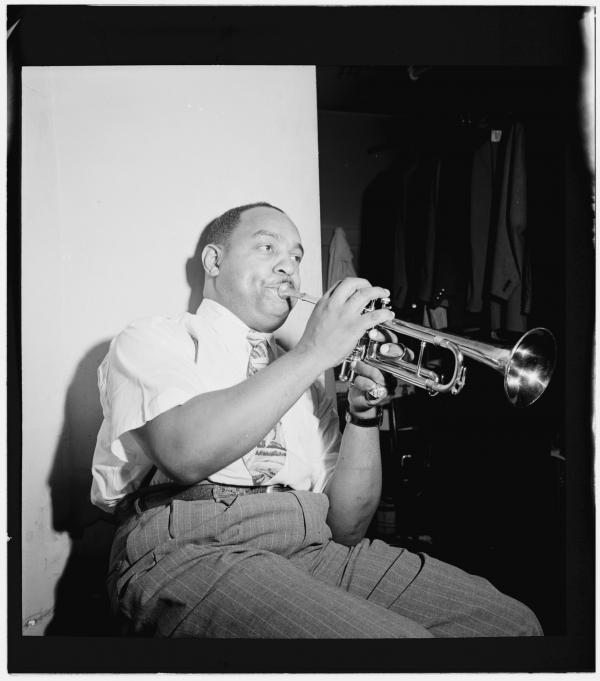Benny Carter

Photo by William P. Gottlieb/Ira and Leonore S. Gershwin Fund Collection, Music Division, Library of Congress
Bio
Benny Carter made memorable impressions as a great bandleader and improviser with a highly influential style. Largely self-taught, Carter's first instrument was the trumpet, although the alto saxophone eventually became his principal instrument. Some of his earliest professional jobs were with bands led by cornetist June Clark and pianist Earl Hines, where his unusual ability to play both trumpet and saxophone was highly regarded. In 1930- 31 he spent a year with the Fletcher Henderson Orchestra, then for a short time he succeeded Don Redman as musical director of McKinney's Cotton Pickers. During the early 1930s, he also made his first recordings with the Chocolate Dandies, which included Coleman Hawkins. In 1932, Carter formed his own big band. At various times the band included such significant players as Ben Webster, Chu Berry, Teddy Wilson, Dicky Wells, Bill Coleman, and Sid Catlett.
In 1934, Carter dissolved his band, migrating to Europe the next year, where he served as a staff arranger for the BBC Orchestra in London until 1938. His work in Europe took on an ambassadorial tint, playing as a freelance soloist with musicians in England and France and leading a multiethnic band in Scandinavia in 1937. Growing restless, Carter returned to the U.S. in 1938 and assembled a new big band, which became the house band at the Savoy Ballroom through 1940. In 1942, with another new band in tow, he settled in Los Angeles, his longtime home base. With lucrative film studios calling, Carter began scoring films and television. He became one of the first African Americans to be employed in the field, easing the way for other black composers. His first film work was in 1943 on Stormy Weather.
Starting in 1946, with his composing and arranging skills in constant demand, Carter disbanded his orchestra and became largely a freelance player. He participated in tours with Jazz at the Philharmonic and wrote arrangements for major singers such as Ray Charles, Ella Fitzgerald, Peggy Lee, Sarah Vaughan, and Louis Armstrong. Many of his subsequent recordings, such as the widely hailed Further Definitions, were evidence of the depth of his composing and arranging mastery.
Carter has received numerous awards during his long lifetime, including a Grammy Lifetime Achievement Award in 1987, a DownBeat International Critics Poll in the arranger's category in 1988, Jazz Artist of the Year in both DownBeat and JazzTimes International Critics' polls in 1990, and the National Medal of Arts in 2000. In 1996, a documentary on Carter, Symphony in Riffs, was released.
Selected Discography
All of Me, Bluebird, 1934-59
Jazz Giant, Original Jazz Classics, 1957-58
Further Definitions, Impulse!, 1961-66
Harlem Renaissance, MusicMasters, 1992
Benny Carter and Phil Woods, Another Time, Another Place, Evening Star 1996

